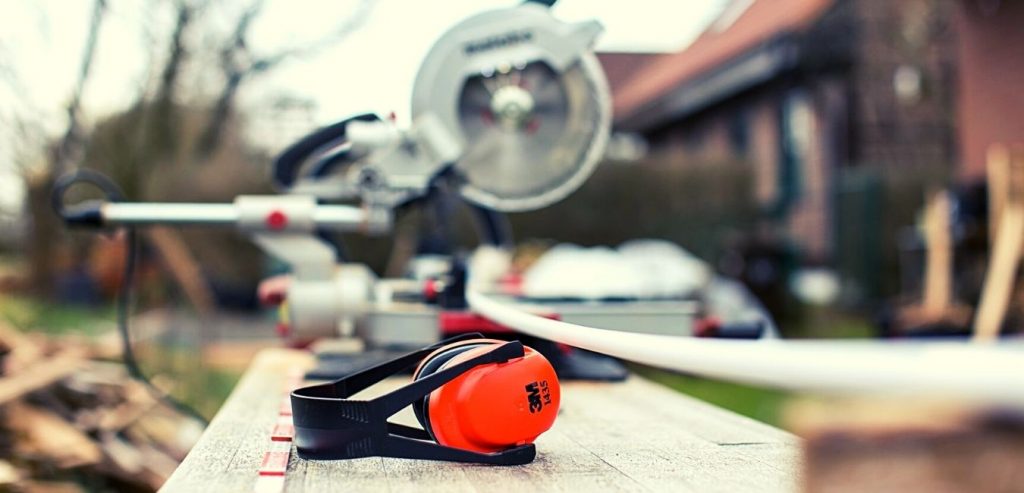Before you start developing your piece of land, you need approvals from the local or federal government, which are referred to as building permits. Different types of structures and developments require different kinds of building permits. The building permits also differ in other districts, regions, or countries. The factors considered before issuance of a building permit are the scope of a project, location, occupancy, estimated cost, and the environmental impact.
Table of Contents
What is a building permit?
A building permit is a legal authorization offered by a regulatory body such as the government before the legal commencement of a construction project. The building permit is a standard intended to ensure the safety of current and future property owners and occupants by enforcing the necessary zoning and land-use policies.
Building permits are essential, and both economists and investors closely watch building permits as they are indicators of either growth or stagnation of specific economic segments. An increase in commercial building permits indicates the expansion of companies or businesses and increased commercial activity in the area.
When do you need a building permit?
You do not need a building permit for all construction and renovation projects. However, it would help if you generally had a building permit whenever you alter, repair, enlarge, move, demolish or construct a new structure.
Whenever you have a project that involves significant changes or additions to your home structure, you will need a building permit. If you are hiring a contractor for your project, they usually factor in the costs of procuring building permits in their bids.

When don’t you need a permit?
As earlier stated, not all construction projects need building permits. When doing simple renovations within your property, you may be exempt from building permits. You likely will not require a building permit if you want to: –
- Repaint your house
- Add a kitchen cabinet
- Repave your driveway
- Change a countertop
- Replace a faucet
Where do you get building permits?
When the plans for your proposed project are complete, you need to submit your application package to the building and safety division of your region. Most of the time, Municipal Councils are responsible for issuing building permits.

Types of Building Permits
Construction permits help guide you throughout the entire project scope. We will discuss the types of construction permits below are; commercial, residential,multi-family housing, single-family dwelling, electrical, plumbing, and special hazard permits. They are all necessary in use.
Commercial Permits
Commercial permits are allocated to buildings constructed solely for investment return. These permits allow proper construction, remodeling, and addition of stable and safe facilities. Some examples of commercial permits are;
Foundation only permits
Before any building plans are accepted, a contractor can only lay the foundation of the building. This is made possible after the foundation-only permit is allocated.
New commercial property permits
After getting the new commercial property permits, known tenants can add commercial buildings.
Remodel permit
Contractors must get a remodel permit before renovating their interior and exterior buildings. This permit is necessary to ensure that all remodeling aligns with the building code.
Solar permits
Solar energy is a good strategy for construction sites to save on power. However, a solar permit is required before installing solar panel systems into your building.
Construction trailers permit
This permit allows construction workers to park their trailers on the construction site throughout the project.
Residential Permits
You will need a residence permit if you wish to build, renovate, and make significant changes to residential properties. For example, any interior remodeling of the structure of the building needs a permit. You may not need a license to paint or add wallpaper to your home, but you sure need one if you expand the building space and add extra rooms.
A permit will also be required when adding permanent structures like a spa, pool, and hot tub to your building. Some examples of residential permits include;
Demolition Permits
For remodeling to occur, former structures need to be demolished. This process requires a demolition permit to start. Inspections done will ensure that the demolition is environmentally conscious and that the debris left is disposed of well.
Interior remodel
Individuals wishing to make significant changes in the interior structures of their residential building will need first to get an interior remodel permit.
Multi-Family permits
This permit is given to residents living in commercial properties like; apartments, duplexes, and hotels. Before construction commences, ensure you get a multi-family permit that will insure you from incurring costs on accidents on your property. Examples of multi-family permits include;
Apartment building permit
Apartment buildings usually have more than two or more dwelling units that are rented out. Therefore, an apartment building permit should be obtained before the apartment construction begins.
Condominium permit
Contractors need to get condo permits if their property has multiple dwelling units.
Foundation only
Before getting approval for your construction project, you can first get a foundation-only permit to build the foundation.
Single-family dwelling permits
Just like multi-family dwellings, single-family homes also need permits. Examples are;
Master plan permits
A master plan permit is required for an inspector to approve a home plan. In addition, all single-family homes must follow building codes to pass inspection.
Foundation only
Foundation-only permits are obtained when you construct a foundation before your building plan is accepted.
Custom home permit
If you choose to have a custom home, you should get a custom home permit that expires after the house is built.
Plumbing Permits
A plumbing permit ensures that plumbing is installed correctly and safely by a qualified plumber. Examples are;
Residential Plumbing
These permits are needed for new plumbing construction systems, like installing a new shower or pipe system.
Commercial plumbing permits
Plumbing in commercial buildings is more complex, with many flush toilet systems and anti-siphon features. In addition, a commercial plumbing permit ensures that all plumbing work is done correctly.
Electrical permits
Electrical system procedures must be adhered to for the safety of the occupants. Electrical permits can be grouped into;
Residential electrical permits
One has to pass the inspection of residential electrical systems to get a residential electrical permit. Get a licensed residential electrician to help you pass a check and acquire the permit.
Commercial electrical permits
All commercial buildings need a certified electrician with knowledge of electrical systems. After inspections, commercial electrical permits are given to ensure that suitable systems are installed for safety reasons. Unlike residential buildings with a lower voltage, commercial buildings have high electrical requirements.
Special hazard permits
These permits are used for emergencies to help handle hazardous scenarios. For example, hospitals should have an emergency and standby power system permit to use generators during a power outage.
The building permit process
To obtain a building permit, you need to submit the necessary documents and the application fees to the local authorities. You need to follow through with some essential steps. These steps differ from state to state, but they follow the same pattern described below. Described below is a list of items you need to fulfill to obtain a permit.
1. Research for the local process of obtaining a permit.
A glance through the City’s website will give you the necessary information needed. You will then contact the local building office, which will outline the requirements for the building permit. Depending on jurisdictions, some cities may require multiple licenses depending on the scope and project. You may also need separate permits for plumbing, heating, and electrical works.
2. Prepare permit application.
You will need to submit the plans for your proposed project as well as the application forms. The plans may be a complete set of blueprints or simple sketches of your project plan.
3. Application submission
After preparing your permit application, you need to submit your application and pay the necessary application fees. The application fees are for the people who come to review and inspect your property. The costs vary depending on the size of the project. Reviewers will look at your application to determine if it complies with the local standards. If the submission does not, they will advise accordingly on the ways to correct it. This process may take weeks, and you should therefore factor this into your timeline.
4. Issuance of the permit certificate
If successful, you will then be issued a permit certificate. You now have the legal grounds to start your construction project. The timeframe between issuance and actual construction varies from one jurisdiction to another, but it is essential to avoid renewing your permit immediately. You may have to tape the license near a window or door where the work is being done.
5. Schedule inspections
Inspections ensure that the work is going according to plan. During various stages of the construction, assessments are conducted to note problems before they blow out of proportion quickly. If the inspector notes down any changes, they need to be rectified before continuing with the work.
After completing the work, a final inspection is scheduled to ensure everything is properly functioning and safe for habitation.

What happens after the inspection fails?
Inspection is an essential process in construction that ensures that work is in line with the code of the building. Please focus on the issues the inspector notes and rectify them before the next inspection.
If an inspection fails, you can take another inspection till you get all building specifications right. Regardless of how often you fail review, you immediately become eligible for a building permit if you pass.
If you hire a contractor who fails inspection, they should take full responsibility and request a review to get the building permits.
What Happens After a Building Permit is Issued?
After your building permit is issued, you have up to six months to commence the work.
If you continue building, you may use your permit until the project closeout.
However, you may need to apply for an extension if your permit expires due to the work stalling for more than six months. If that happens, the project owner has to file a Notice of Commencement to announce the beginning of construction to the stakeholders.
Not all states, however, require a notice of commencement. The notice of commencement also gives suppliers and subcontractors all the information they need on a job and its participants.
FAQs
New homeowners or developers often have questions regarding building permits. Below are answers to some of the frequently asked questions concerning building permits.
What happens if you want to make a change to the plan after receiving a building permit?
When you want to make changes to the plan after receiving a permit, you need to contact the local authorities for an inspection. The inspector may then approve changes to the work if it does not interfere with the structural integrity of the building or bring new safety hazards. If you have significant revisions on your construction plan, you may need to apply for a new permit. Major revisions include: –
A substantial change in project scope
Change in structural design, such as changing from steel to reinforced concrete.
Changes in occupancy
Change in construction type
Brand new design
If the changes are minor and do not meet the above criteria, you can receive approval for the revisions and do not need to apply for a new permit.
How long does it take to get a building permit?
The local authorities review permits on a first-come, first-served basis. However, the authorities try issuing permits within the following timeframes.
1. For minor commercial and residential projects, the process of obtaining the permits takes about four weeks. Such projects include residential remodels, single-family homes, and non-structural improvements.
2. When it comes to moderate projects such as structural tenant improvements and commercial additions accompanied by changes in occupancy, the permits take up to six weeks.
3. For major projects such as new commercial buildings, the permits may take up to eight weeks.
What happens if you don’t get a building permit?
Failure to obtain a building permit is a violation of the City’s regulations, and you may be subject to penalties. Unfortunately, many homeowners bypass the permit application process in the building. It is possible that the owners can complete these projects with good quality, and they might never cause problems. However, it is good practice to apply for the permits as there are several hazards possible if one tries to bypass the process. These are: –
If you want to sell your house, the buyers’ inspection team may uncover remodeling and additions done improperly without building permits. This may prevent you from selling your home and force you to start the work afresh with a license.
In the event of a catastrophe such as a fire, building collapse, or severe plumbing problem, if discovered that you did the work without proper permits, your insurance policy is likely to decline to cover the damage.
Insurance companies need a building permit to ensure that the building is safe and has been constructed to the required standards. If you don’t get a building permit and an accident happens in your building, your insurance policy can refuse to cover your damages. You will need to pay for all damages incurred.
If inspections are done, and your building doesn’t have a permit, you will be forced to tear down the walls and ceilings so the work can be thoroughly inspected. Then, if the building violates any construction code, you must demolish it, make the necessary changes, and then build again.
If you don’t get a permit, you can be fined, especially if you constructed the building without it. After such an incident, permit costs are increased, and you spend more money than planned.
How long is a building permit valid for?
Different jurisdictions have different time requirements for building permits. However, as a common rule of thumb, a building permit automatically expires if work does not commence within six months from the date of issuance. It also automatically expires one year after the date of issuance. It is advisable to apply for your permit as soon as possible to the commencement date of the work. You can always apply for the renewal or extensions of expired licenses.
How much does it cost to get a building permit?
Building permits cost from 0.5% to 2% of the total construction costs. The fees depend on the type and size of the project. For small jobs such as plumbing and electrical works, building permits cost between $50 and $300. Licenses for big projects such as construction and remodeling cost anywhere from $500 to $2000. The rates are based on a flat rate, construction value, or project scope per square foot.
How to get a permit after work is done?
Permits obtained after the work is done are referred to as retroactive permits. The process of application is like the application of regular permits. However, a penalty may ensue for application after building. The Building Regulatory Department will have to inspect the project and ascertain compliance with the current building codes. They will have to review the project’s as-built drawings, the relevant architectural, structural, and MEP drawings and inspect the work. These drawings need to reflect the geometry and dimensions of the project accurately. The retroactive permit application may also require supporting structural calculations and qualified testing agency confirmation on steel quality.
Summary
The building permit process is not a nuisance as many people view it to be but is a necessary service offered by the government. You can employ the services of licensed professionals to help you obtain the required permits for your project.

